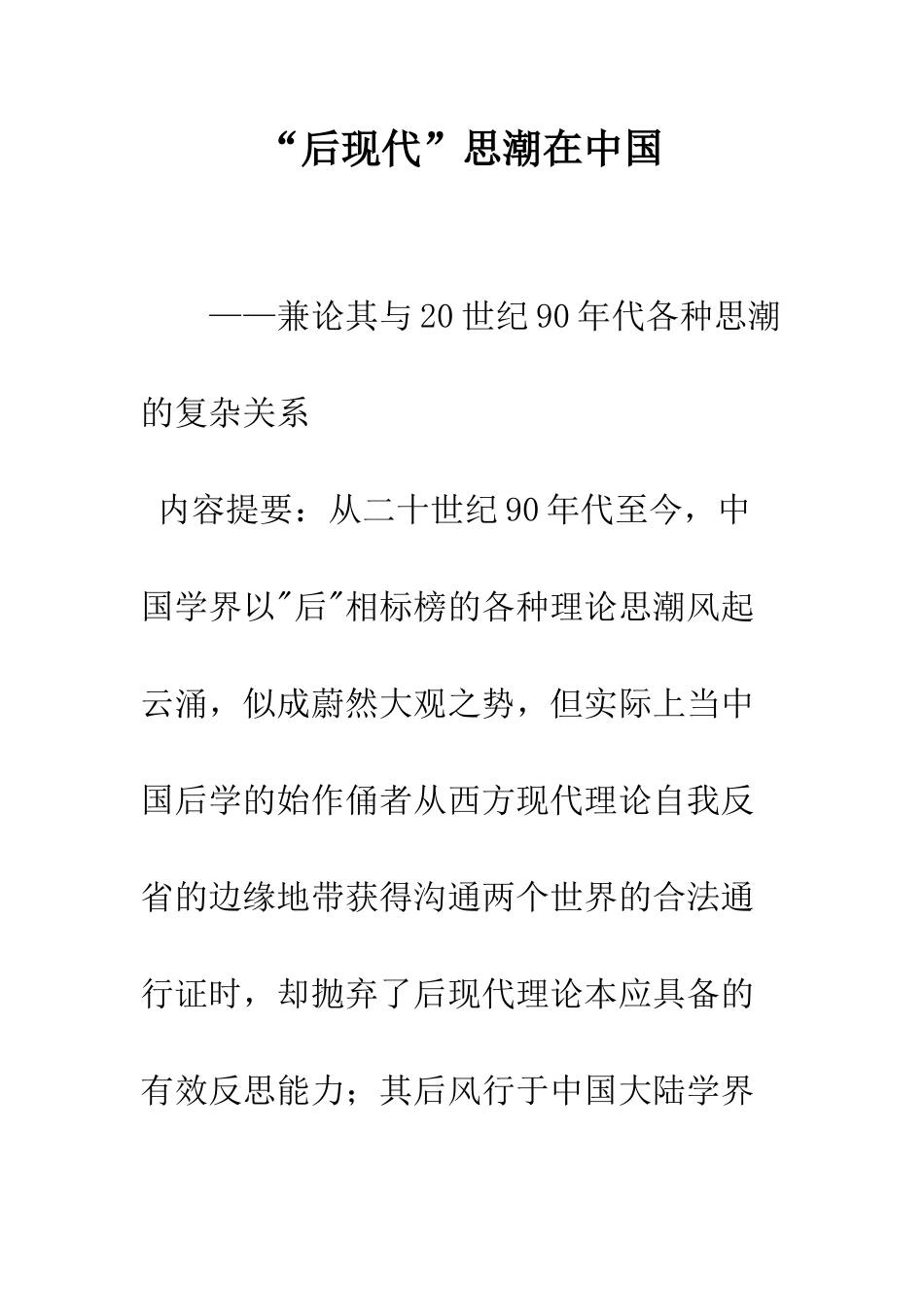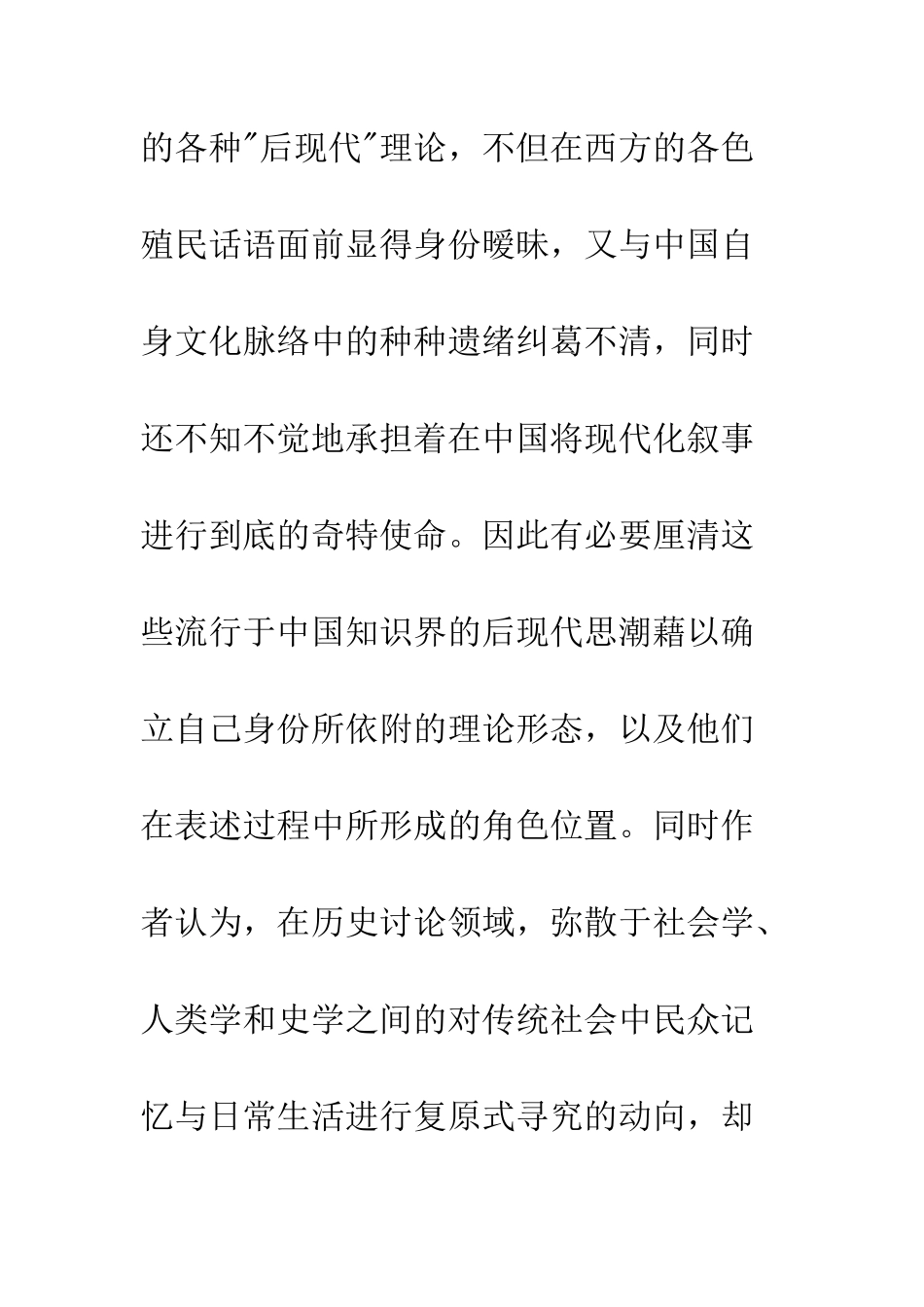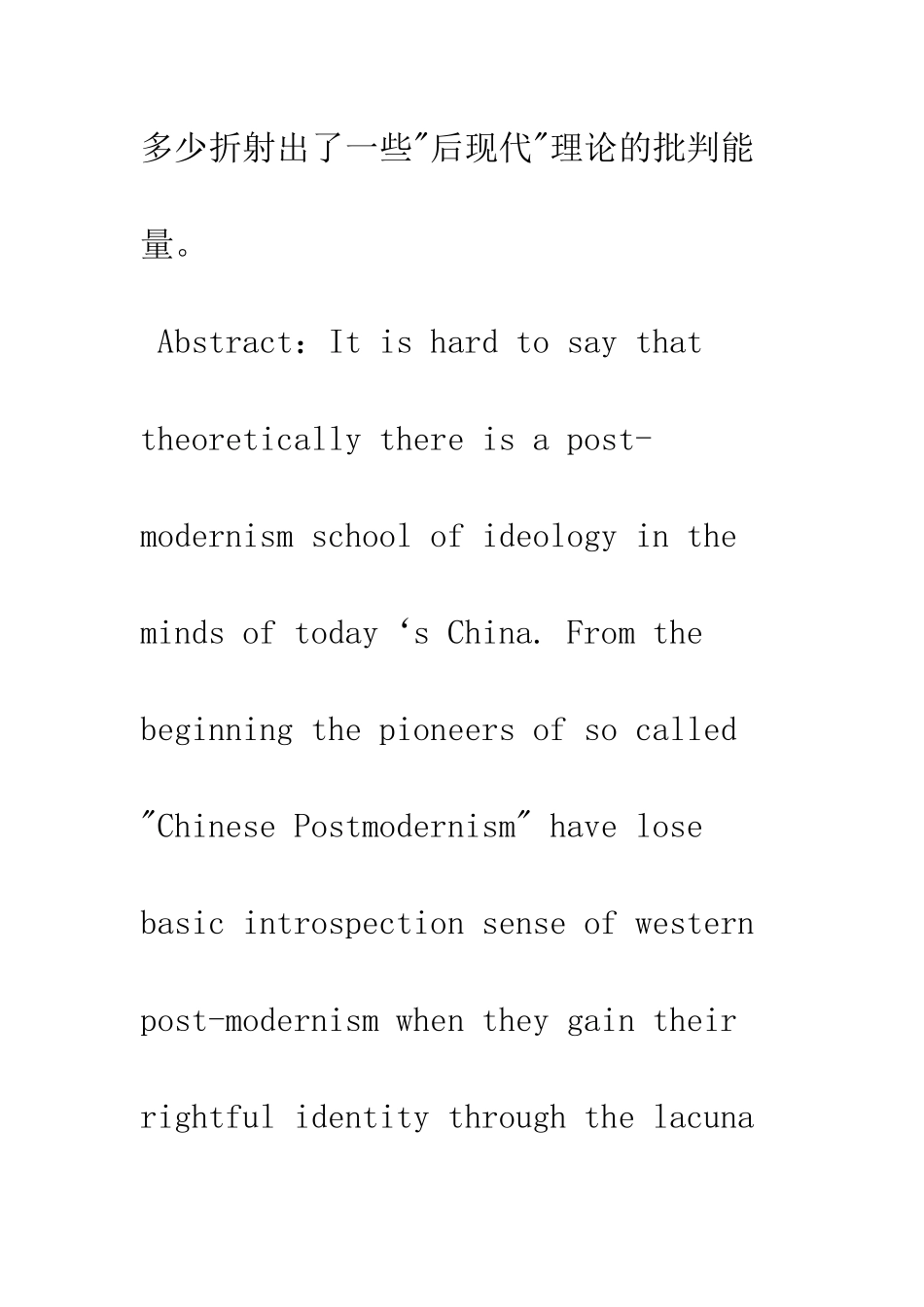“后现代”思潮在中国 ——兼论其与 20 世纪 90 年代各种思潮的复杂关系 内容提要:从二十世纪 90 年代至今,中国学界以"后"相标榜的各种理论思潮风起云涌,似成蔚然大观之势,但实际上当中国后学的始作俑者从西方现代理论自我反省的边缘地带获得沟通两个世界的合法通行证时,却抛弃了后现代理论本应具备的有效反思能力;其后风行于中国大陆学界的各种"后现代"理论,不但在西方的各色殖民话语面前显得身份暧昧,又与中国自身文化脉络中的种种遗绪纠葛不清,同时还不知不觉地承担着在中国将现代化叙事进行到底的奇特使命。因此有必要厘清这些流行于中国知识界的后现代思潮藉以确立自己身份所依附的理论形态,以及他们在表述过程中所形成的角色位置。同时作者认为,在历史讨论领域,弥散于社会学、人类学和史学之间的对传统社会中民众记忆与日常生活进行复原式寻究的动向,却多少折射出了一些"后现代"理论的批判能量。 Abstract:It is hard to say that theoretically there is a post-modernism school of ideology in the minds of today‘s China. From the beginning the pioneers of so called "Chinese Postmodernism" have lose basic introspection sense of western post-modernism when they gain their rightful identity through the lacuna in the self-examination of the Western modernization project. As a result, the thoughts flourished afterward remain this awkward position at the presence of multifarious western colonial discourse, sometimes they can be seen as a remnant of the cultural line in the traditional China, also, they become unaware of their accessory of the modern narrative in Chinese context. Therefore it is wished to make clear the theory conformation in which these ambiguous ideas rooted and how they locate themselves in their discrepant representations. The point of view brought in this article concerned with the problem that how to activate the mental vitality of the postmodern theory in the area of history criticism. It can be seen, more or less, in the co...


